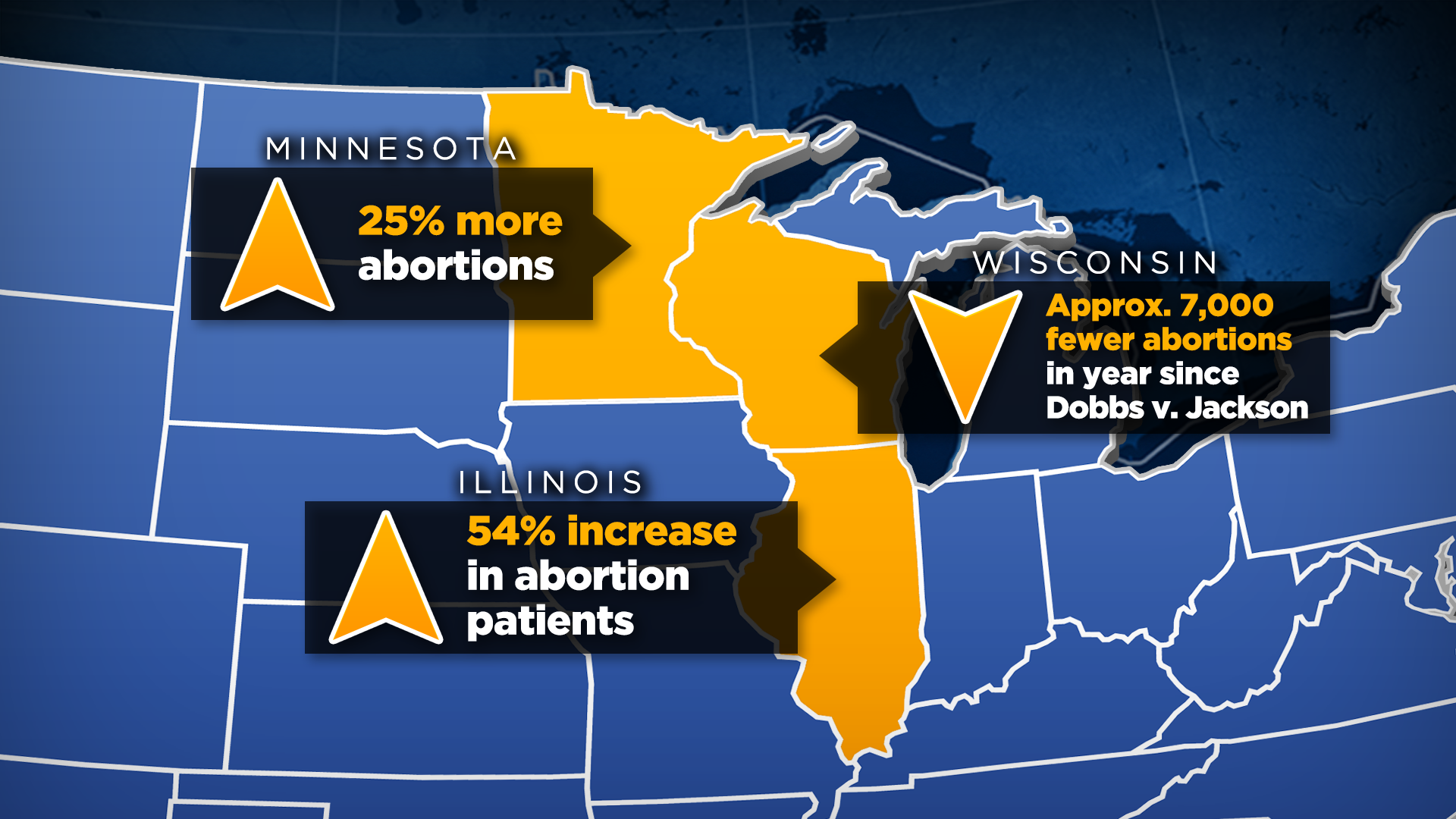MILWAUKEE (CBS 58) -- Data and reaction from healthcare professions reveal a dramatic impact in the reproductive care landscape in Wisconsin and region as the country marks one year since the overturning of Roe v. Wade.
Saturday, June 24 marks one year since the U.S. Supreme Court ruled in Dobbs v. Jackson, overturning Roe v. Wade and creating a ripple effect of changing abortion laws across the country.
In Wisconsin, that meant an 1849 law banning abortions unless the mother's life is in danger was immediately put in place.
According to data from UW Madison's Collaborative for Reproductive Equity and Planned Parenthood, the Dobbs v. Jackson decision has resulted in an estimated 7,000 fewer abortions in Wisconsin. Meanwhile, neighboring Illinois and Minnesota have seen increases in abortions and abortion patients.
"Some people have gotten to Minnesota, some people have gotten to Illinois but there definitely have been folks that have continued pregnancies that they would not have chosen to continue," said Dr. Eliza Bennett, a clinical associate professor at UW-Madison.
Bennett told CBS 58 those with fewer resources have been disproportionately impacted by the change.
"They really have paid a great price in the last year even when they've been able to access abortion care, they've had to travel long distances and incur significant costs," Bennett said.
Dr. Kristin Lyerly is a physician and OB-GYN based in Green Bay. Prior to last year, she performed reproductive care and abortions. But since the overturning of Roe v. Wade, she has worked in rural parts of Minnesota.
"The work that I'm doing is very different than the work that I was doing in Wisconsin, but I sure would love to be doing it back home," Lyerly said.
Lyerly is one of the plaintiffs in the lawsuit challenging the state's 1849 abortion ban. She described the chilling effect the Dobbs v. Jackson decision had on her and other health care professionals.
"It wasn't just abortions we stopped performing, but then we were confused about whether we could manage miscarriages, could we manage people who were suffering with ectopic pregnancies?" Lyerly said.
The lawsuit concerning the 1849 abortion ban is expected to be taken up by the state Supreme Court after newly-elected Justice Janet Protasiewicz is seated.















